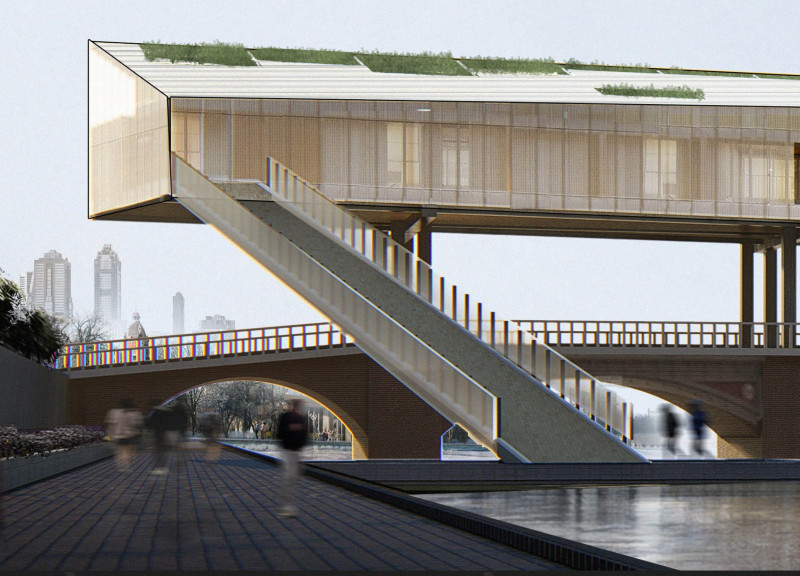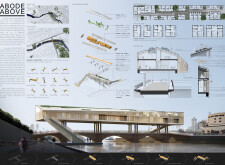5 key facts about this project
ABODE ABOVE is an architectural initiative located along the Yarra River in Melbourne, focused on providing affordable housing in an urban environment. The project aims to creatively utilize existing bridge structures to offer modular living spaces that meet the needs of a diverse community. The design emphasizes sustainability and encourages connections between residents while integrating with the natural landscape.
Design Concept
The design features modular units that can be customized for different living arrangements, including studio and two-bedroom apartments. Each unit is designed to maximize natural light, fostering a comfortable indoor environment. By including green spaces in common areas, the design encourages community interaction and allows residents to participate in gardening, which strengthens their ties to nature.
Community Connectivity
A key component of ABODE ABOVE is the connection it creates between both sides of the Yarra River. By placing living units on existing bridges, the project enhances pedestrian flow and encourages social engagement among residents. This design promotes an active lifestyle and builds a vibrant community, enhancing the urban living experience.
Sustainability and Efficiency
Sustainability is a fundamental consideration of the design. The roofs of the units are oriented to face north, allowing for maximum sunlight exposure, which is beneficial for solar panel installations. The layout is crafted to ensure that the building's impact on the environment is minimal. Natural light is preserved for the roadways beneath, supporting a pleasant setting for both residents and pedestrians. The use of double-skin facades improves thermal performance and provides additional privacy.
Material Considerations
While the project description does not emphasize specific materials, the intent is clear: to use resources efficiently and incorporate environmentally friendly options. The architectural choices reflect a commitment to energy efficiency and durability, aligned with modern sustainable design practices.
Each unit includes a terrace garden, offering personal outdoor space that enhances urban living. This feature not only provides residents with a green retreat but also supports the ecological balance of the overall project.


















































